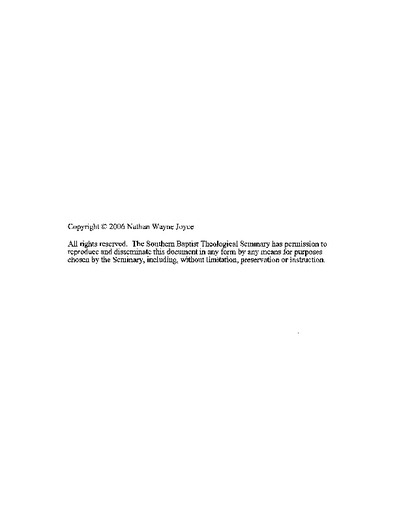| dc.description.abstract | While Christian counseling is a burgeoning field, it seems to lack clear philosophical and methodological definitions. This is particularly true when it comes to the human-divine relationship in that few theories or models exist that can guide practitioners in assessment and intervention of the human-divine relationship in order to improve it. Attachment theory offers relational concepts that can be applied to a person's relationship with God thus offering guidelines for soulcare providers. Attachment theory describes the relationship between God and persons in similar fashion with the Bible. Adoption is understood to be the central doctrine that relates to attachment, but it is aided by justification by faith, union with Christ, naming God "Abba," and the testimony of the Spirit. While attachment theory holds much in common with biblical principles, it also has several deficiencies including biological reductionism and limited teleology. Attachment theory is most applicable to Christianity in a post-postmodern ideology that allows for metanarrative but also takes seriously the subjective elements of experience as these experiences form narratives through a hermeneutic function in which persons interpret reality. Paul Ricoeur's concept of testimony aids in explaining the way in which life experiences form a narrative that fuels concepts of self, others, and relationships and the manner in which this process if transformed. Ricoeur's ideas have much in common with the Adult Attachment Interview in which adult's state of mind toward attachment is revealed through the type of narrative they produce about attachment. The primary indicator of such is the level of coherence in the person's narrative.
It is proposed that a similar narrative interview, entitled the Adult Attachment to God Interview (AAGI), could produce indicators of a person's level of security and primary attachment strategy. Through testimony analysis, the soulcare provider can discover the level of coherence of a person's narrative concerning life with God and thus encounter the type of attachment a person has with God. Furthermore, the interview process will give insights into types of interventions that will aid the person in developing a more cohesive narrative and thus a more secure relationship with God. | en_US |

